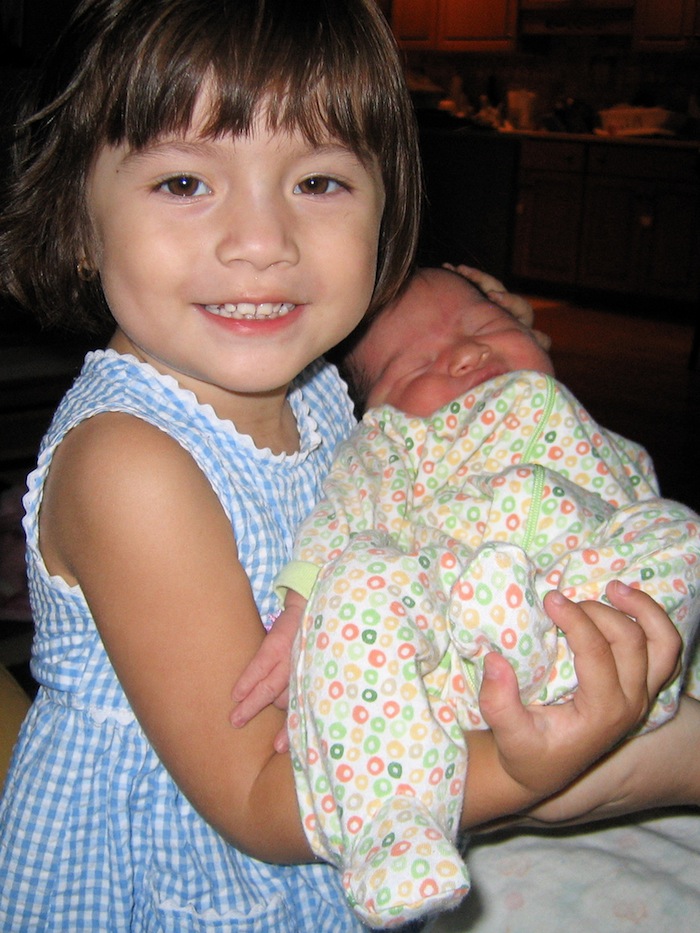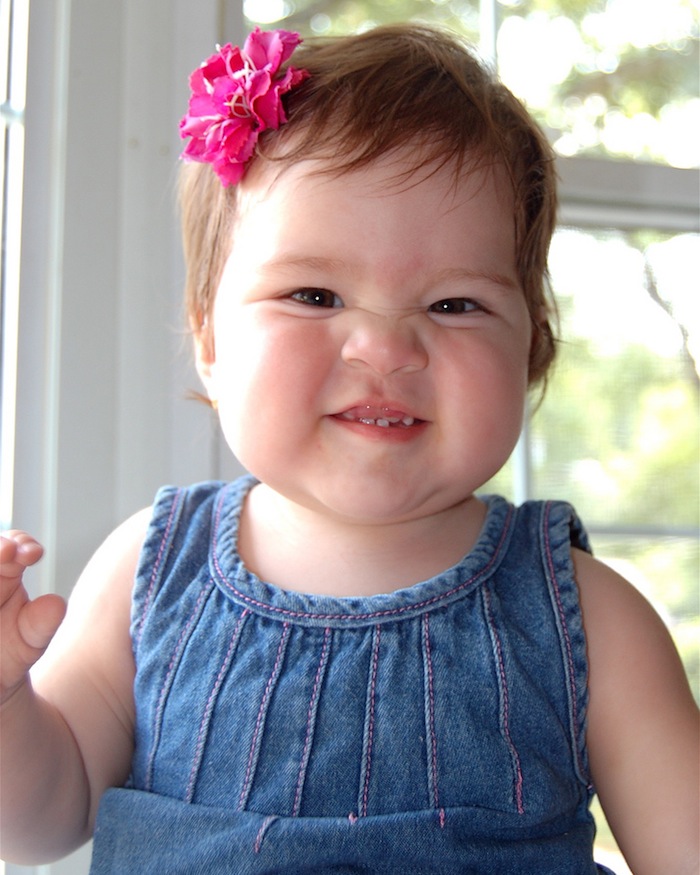This is part of a sponsored collaboration with AstraZeneca and DiMe Media. However, all opinions expressed are my own.

While my little girls aren’t so little anymore, they’ll always be my babies!
My sister actually just had a baby in October, so I’ve had baby on the brain. My niece, picture below… she’s just the cutest. Every new parent obviously wants nothing more than to do everything they can to keep their newborn happy and healthy when they go home from the hospital, but unfortunately parents of premature babies often face a greater challenge when it comes to protecting their children. Much like a preterm birth can come with complications, many preemies also require special medical attention, especially during these winter months when contagious illnesses are more common.

Each year worldwide, 13 million babies are born prematurely. Despite this startling statistic, many parents still aren’t aware of the risks of premature birth… it’s the leading cause of neonatal death. 75% of parents don’t even understand the definition of prematurity (birth at or before 35 weeks gestation), and during prenatal care, most pregnant women don’t ask their healthcare provider about the risk of delivering prematurely and the potential consequences of preterm birth for their child. I know this topic never came up with my OB or midwife. It’s so important for parents to be aware of the risks associated with premature birth, particularly around one seasonal virus that poses a threat to babies – Respiratory Syncytial Virus (RSV).
What is RSV?
RSV is a common, seasonal virus that affects nearly all infants by the age of 2. In many babies, the virus just leads to a mild respiratory infection with symptoms similar to that of the common cold or flu, but in some cases it can develop into a much more serious infection. In the U.S., RSV is the leading cause of hospitalization for babies during their first year of life and causes up to 200 infant deaths each year, which is up to 10 times as many infant deaths each year as the flu, to put it into perspective.
What are the symptoms of severe RSV disease?
• Coughing or wheezing that does not stop
• Fast or troubled breathing
• Spread-out nostrils and/or a caved-in chest when trying to breathe
• Bluish color around the mouth or fingernails
• Fever (especially if it’s over 100.4°F [rectal] in babies under 3 months old)
Which babies are at increased risk of developing severe RSV?
Every baby is at risk of contracting RSV, but babies born prematurely – earlier than 35 weeks gestation – are at increased risk for developing severe RSV, being twice as likely as full-term infants to be admitted to the hospital for RSV-related symptoms. This is because premature infants were not able to fully develop in their mother’s womb, so they were born with underdeveloped lungs which makes them more susceptible to chronic lung problems and respiratory infections. They also don’t receive the full amount of infection-fighting antibodies that are transferred in utero, so their little bodies aren’t as prepared to fight off infections as full-term babies. Children with certain types of congenital heart disease and chronic lung disease of prematurity are also often at high risk for developing severe RSV as well.

Can RSV disease be prevented?
Unfortunately there is no treatment for RSV infection at this time, so this is why prevention is critical. All parents – especially those of high-risk babies – should be aware of the steps they can take to help protect their children from contracting RSV, including:
• Washing your hands and ask others to do the same
• Keeping toys, clothes, blankets, and sheets clean
• Avoiding crowds and being around people, including young children, who may be sick during RSV season (typically from November through March)
• Talk to your child’s pediatrician about whether your child may be at high risk and ways you can help protect a high-risk baby
Where can I learn more about RSV?
Visit www.RSVprotection.com for more information and tips on talking to your pediatrician about your child’s risk factors. You can also find data about the RSV season in your area, and read real stories of other families’ experiences with RSV to give you an idea of what you can expect. Download and print this infographic as a reminder!

My niece had this when she was a baby and it was awful! I hate to hear about little ones getting THAT sick.
We were so lucky that our son after being a premie didn’t get this. It is a terrifying disease.
Rebecca Bryant´s last blog post ..5 Tips to Get Healthy This Year #Fitness #Healthy
Thank you so much for bringing RSV to light. I don’t think I had heard of it before today.
Tina @ My Highest Self´s last blog post ..Review & Giveaway: NU SKIN Epoch Glacial Marine Mud Mask and Clay Pack Deep Cleansing Masque
RSV is no joke! I had 3 premie babies and I was very worried during RSV season. Great info to share
It sounds like it’s a good idea to be proactive and watch for the symptoms. Washing our hands has always been a priority for us.
Those pictures are adorable! I never heard of this before but appreciate you sharing all of this information.
I don’t know anyone who has had issues with RSV but educating moms to be is definitely helpful and I totally support the cause.
Athena´s last blog post ..Party LED Stage Light #wowtoupartylight
RSV is horrible! My daughter had it when she was 2 and hospitalized for many days. It was very scary! I had not heard of it before she contracted it, thank you for informing your readers!
My three year old got it this year. It went around her school. I’m so glad my pediatrician caught it!!